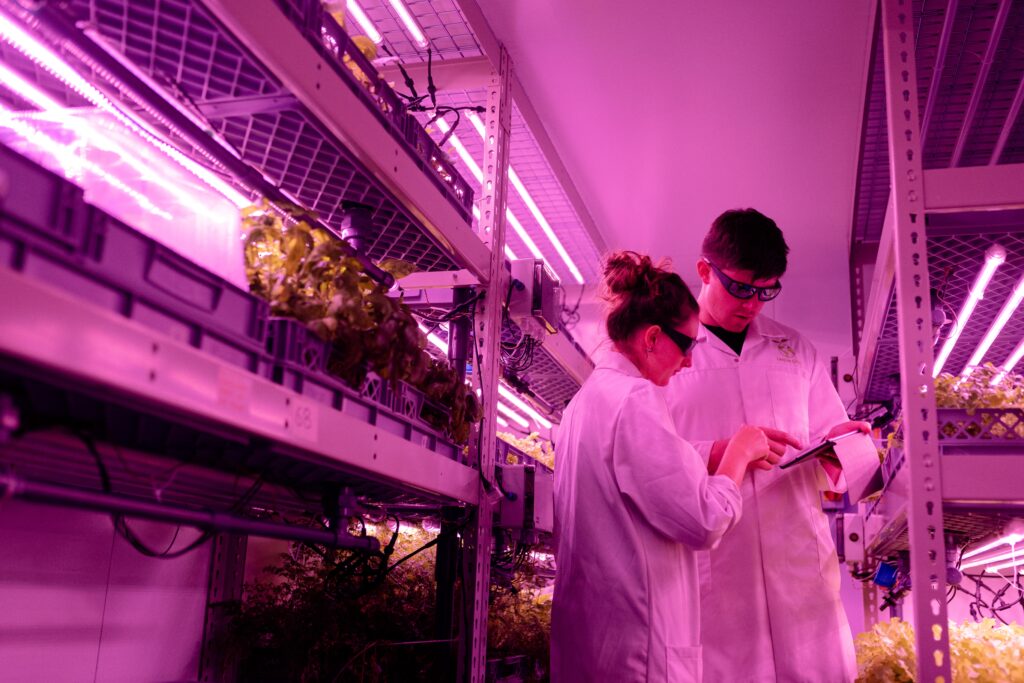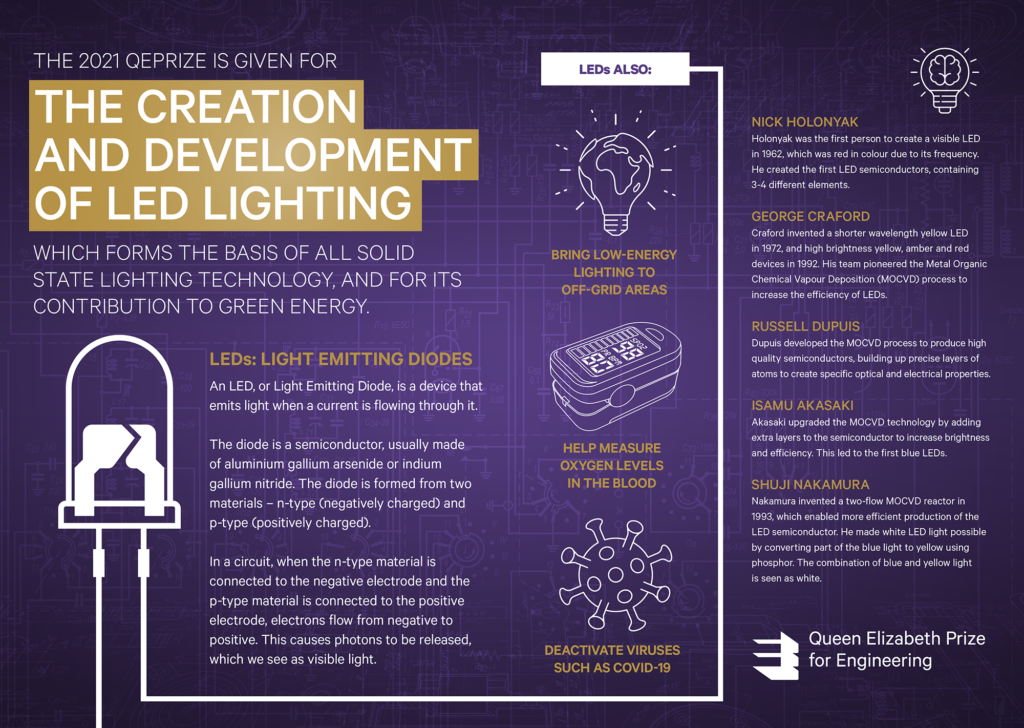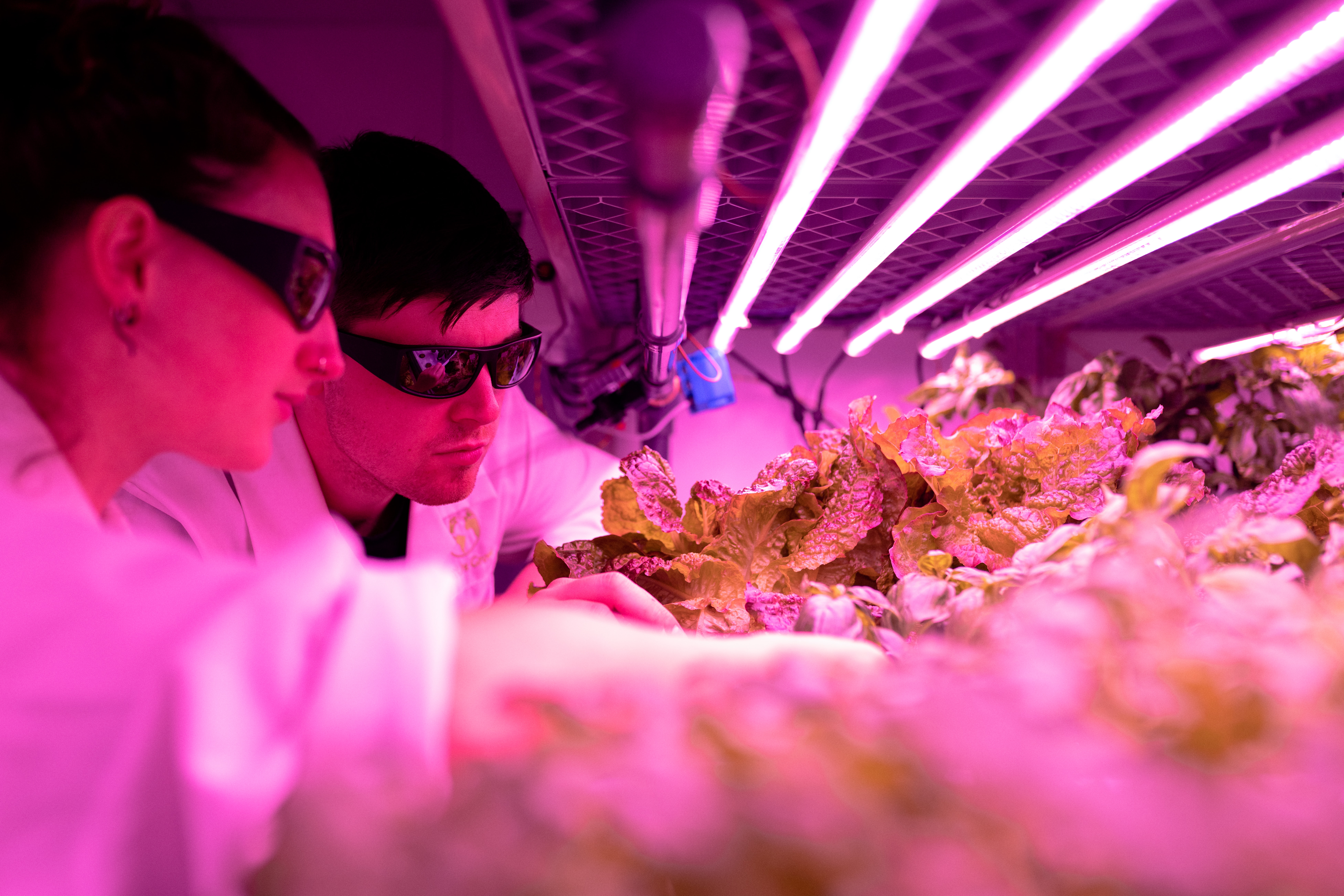The 2021 Queen Elizabeth Prize for Engineering has gone to five pioneers of LED technology.
This year the QE Prize for Engineering has been awarded to Isamu Akasaki, Shuji Nakamura, Nick Holonyak Jr, M. George Craford and Russell Dupuis for the creation and development of LED lighting.
Their pioneering work has formed the foundation to all-solid-state lighting technology.

Solid-state lighting technology has radically changed how we illuminate our world and can be found everywhere from digital displays and computer screens to handheld laser pointers, automobile headlights and traffic lights.
LED bulbs mean that lighting today can last nearly 25 times longer than incandescent bulbs which in turn reduces the energy demand required to cool buildings. For this, they are often referred to as the ‘green revolution’ within lighting.

Modern high-performance LEDs are used in efficient solid-state lighting products across the world and are contributing to the sustainable development of world economies by reducing energy consumption.
Visible LEDs are now a global industry predicted to be worth over $108 billion by 2025 through low cost, high efficiency lighting. LED lighting is 75% more energy efficient than traditional incandescent and compact fluorescent bulbs, and is playing a crucial role in reducing carbon dioxide emissions.
